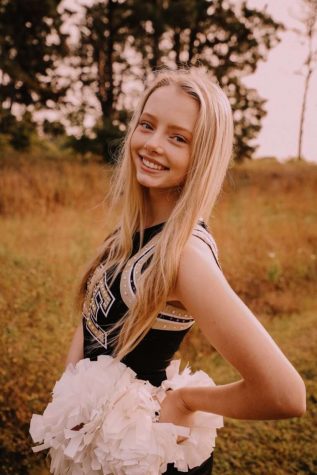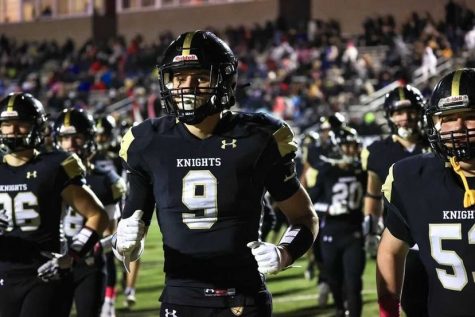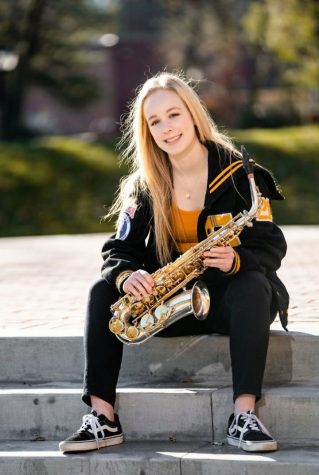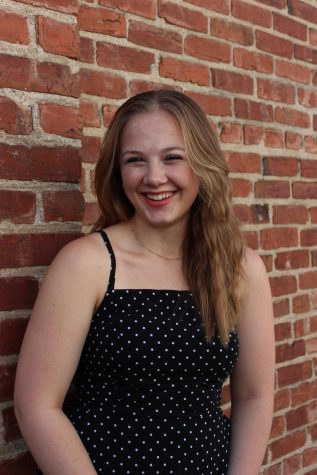Diversity in the student body
How “stereotype threat” is affecting students’ high school experience
May 18, 2021
From “Mean Girls” to “The Breakfast Club,” there’s no doubt that generations have been obsessed with placing people into metaphorical boxes. This attraction to grouping people into neat categories based on common prejudices or assumptions is natural, but with the help of social media and entertainment companies, this constant categorizing has become negatively glamorized.
We have all heard of them. The cool (but unintelligent) jock, the weird band nerd and the dumb blonde. Stereotypes and cliques plague not only the halls of high school, but now with the help of technology, the world wide web as well.
In places like high school, where emotions are already running high, the introduction of another aspect to be judged and bullied over doesn’t help anything to say the least. Social-psychological researchers are finding that while stereotypes and cliques are affecting student’s emotions, they are influencing performance in school as well.
In an article from the American Psychological Association (APA), Psychologists Dr. Claude Steele and Dr. Joshua Aronson tested this idea by giving both black and white college students a test, but reminded some students that, “the test diagnosed intellectual ability,” potentially evoking the stereotype that Blacks are less intelligent than Whites.
For the other portion of participants, the test was described to them as a “problem-solving lab task that said nothing about ability.” The change in words was used to render stereotypes as being irrelevant.
As predicted, the Black students in the first group did worse than those in the second all because they were reminded of the stereotypes that Blacks are less intelligent than Whites.
It’s clear that this stereotype is false and that there’s no information to prove it to be true, but it’s obvious that regardless of its accuracy, it’s still subconsciously affecting students.
In the same APA article, Steele, Aronson and Dr. Steven Spencer have run many more tests like the one above, proving that “passing reminders that someone belongs to one group or another, such as a group stereotyped as inferior in academics, can wreak havoc with test performance.”
Creating doubts in a student’s ability during high-pressure situations, such as a test, results in what psychologists call “stereotype threat.”
This phenomenon has become more apparent when talking about the effects stereotyping has on students’ education along with the scores students receive on their standardized tests.
This idea of creating doubts has also made its way into multiple supreme court cases. One example is the Supreme Court case Abigail Noel Fisher v. University of Texas at Austin. In this lawsuit, the idea of stereotype threat was recognized and was used to cite the effects of negative stereotypes when looking at education equality as well as the implications stereotypes present when looking at college admissions.
Adding to the awkwardness of high school, the manipulation of grades is showing just how strong the effects of negative cliques and stereotypes can be in school, but not all schools are as defined as those in the movies.
For some, it’s easy to categorize the cliques in high school, however Lincoln Southeast (LSE) proves to have such a diverse student body and fitting into a single stereotype isn’t the norm.
ANSLEY SOTHAN: More than a pretty face

With her academic record and time commitment to various activities, LSE junior Ansley Sothan is proving that she is more than just a stereotypical pretty face.
Inside of school and out, it’s easy to see that Sothan is busy. Just looking at her involvement with LSE alone, she is on the Shirettes dance team, varsity golf and tennis teams, Health Occupations Students of America (HOSA) club, and a leadership cadre – all while taking multiple Advanced Placement (AP) classes and making LSE’s honor roll with highest distinction, which is achieved by obtaining a weighted grade point average (GPA) of 4.25 and above (on a 4.0 weighted scale) by semester.
Sothan says that while she is involved in so much and has proven herself academically, many don’t see past her appearance.
“I definitely have been stereotyped, being blonde and on the dance team fits the stereotypical mean girl to a t.”
Unfortunately, it’s not just her classmates that do the stereotyping. There have been instances where teachers have doubted her ability as well.
Her desire to pursue medicine was questioned while she was in uniform, saying that her teacher explained that “nursing is much easier” and that “medical school was ‘too much’.”
Sothan recalls the stereotypes and clique mentalities that underlie such instances negatively affected her early high school years and mental health. “As a freshman I was very insecure and caught up with my social image but the obsession has subsided as I’ve matured,” Sothan said.
She understands that stereotypes are a natural phenomenon, but believes that they can be broken once people stop judging and take time to get to know one another.
“Stereotyping is human nature especially in high school when all of us are trying to find our own way,” Sothan said.
Instead of letting the stereotypes shape her and her future she says they “[make] me work harder to prove the stereotypes wrong.”
Jake Appleget
Stronger in more aspects than just athletics

Jake Appleget (11) is another student who combats the falsehoods of stereotypes. As a high school football player, Appleget mainly gets stereotyped based on his athletic involvement.
He recognizes that “many athletes are seen as jocks, not as smart, and maybe even a bit mean,” however his academics are proving that athletes can also be intelligent.
“A lot of people in the football and basketball programs, that I know, are a lot more than just the assumed jock or unintelligent scholar. If given the chance, you get to learn a lot more about who these people really are and that goes for all people,” Appleget said.
While participating on LSE’s football, basketball, and baseball teams, he has maintained a non-weighted 3.95 GPA or higher during the season.
Appleget’s academics also recently received recognition as he made the honor roll with high distinction, which acknowledges students with a weighted GPA of 4.0 to 4.249 on a 4.0 weighted scale by semester.
His academic integrity has also been praised as he’s been deemed an All City academic athlete for the three years he has been involved in high school sports.
However, sports isn’t the only thing Appleget is involved in. In his free time, he is apart of LSE’s Shield Student Leadership group and LSE’s local Star Wars club.
As for people judging others based on stereotypes and cliques, Appleget says that it’s inevitable. “They will always be there and people will always find theirs. But it is not okay to stereotype people and place them into a certain clique without getting to know them first,” Appleget said.
Rachel Odabasi
Talented in more than just music

The overly weird, super geeky band stereotype is a common one that Rachel Odabasi (12) is proving to break.
Her involvement in Marching Band, Wind Ensemble, Varsity Orchestra and Pit Orchestra showcase her love for music. However she has many more talents.
Besides the grueling hours committed to her various musical ensembles, she also finds time to be co-president in Biology Teacher Laurel Schmitz’s Neature Club as well as being a student athlete on the LSE Varsity Tennis team. Outside of school, Odabasi embraces her inner fashionista while working at Von Maur and paints planting pots to add a touch of color to her world.
Depending on the season, her hobbies and interests can take anywhere from roughly 20 hours a week in the fall to over 20 hours in the spring.
She says that while she partakes in many different activities, she is usually stereotyped as a classic band nerd.
“When people know that I’m involved in instrumental music before they actually meet me, they expect me to fit the cliché of what a band kid is thought to be,” Odabasi said.
While this is anything but the truth, it has led Odabasi to believe that the typical stereotypes and cliques affect what people are wanting to explore or get involved in.
“If the stereotype of an activity “isn’t cool,” then why would people want to do it?”
The added clique mentality associated with activities could also sway some groups to think they are better than others.
“I associate exclusion and a social hierarchy with clique mentality when it pertains to stereotypes. This is mainly because the stereotypes of many activities involve the putting down of other activities,” Odabasi said.
Because of this she says, “I definitely try my best to meet everyone with an open mind.”








